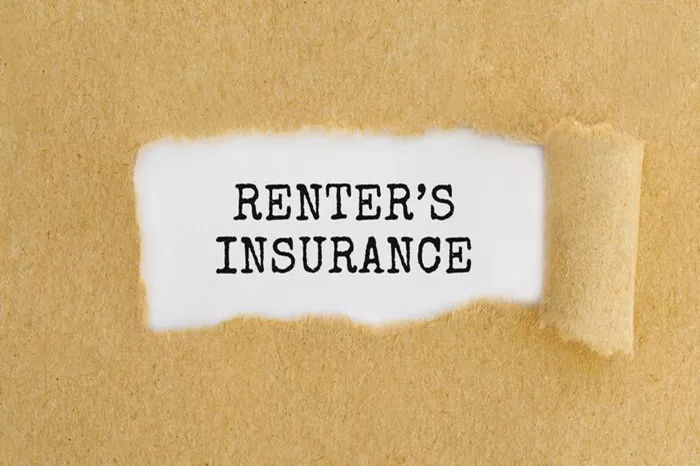When navigating the complexities of renters insurance, it’s essential to understand various terms and provisions that may affect your coverage. One such term is “additional interest.” This article provides an in-depth exploration of what additional interest on renters insurance entails, its significance, and how it impacts your policy. By the end, you’ll gain a thorough understanding of this term and how to manage it within your renters insurance strategy.
Understanding Renters Insurance
What Is Renters Insurance?
Renters insurance is a policy designed for individuals who are renting a home or apartment. It covers several key areas to protect renters from unexpected events.
Personal Property Coverage: This component protects your belongings from risks such as fire, theft, or vandalism.
Liability Coverage: Provides financial protection if you are held responsible for injuries or property damage to others.
Additional Living Expenses: Covers the cost of temporary living arrangements if your rental becomes uninhabitable due to a covered event.
Key Benefits of Renters Insurance
Financial Protection: Offers a safety net for your personal belongings and financial liability.
Peace of Mind: Ensures you have coverage for unforeseen circumstances that could disrupt your life.
Affordability: Typically more affordable than other types of insurance, providing significant value for the cost.
What Is Additional Interest?
Definition
Additional interest refers to an entity or person who has a financial or legal interest in the insured property but is not the primary policyholder. This term is commonly used in insurance policies to denote parties who need to be informed about certain aspects of the insurance coverage or policy changes.
Entities Typically Listed: Landlords, mortgage lenders, and property management companies.
Purpose: To keep these entities informed about significant changes, claims, or potential issues related to the insured property.
Importance of Additional Interest
Notification: Ensures that key parties are notified about major claims or changes in the policy.
Protection: Helps protect the financial interests of those with a vested interest in the property.
Who Can Be Added as Additional Interest?
Landlords
Why Landlords Are Added: Landlords often require being listed as additional interest to stay informed about significant claims or changes that might affect the property.
Implications for Landlords: They receive notifications but are not covered under the renters insurance policy.
Mortgage Lenders
Requirement: Mortgage lenders may require being added as additional interest to protect their financial investment in the property.
Notification: Ensures they are informed about any changes that could impact their collateral.
Property Management Companies
Role: Property management companies may request to be listed to keep track of insurance-related matters affecting the property they manage.
Benefit: Helps them manage property issues more effectively and ensures they are aware of any insurance claims or policy updates.
How to Add an Additional Interest to Your Policy
Contact Your Insurance Provider
Process: Reach out to your insurance provider to request adding an additional interest to your renters insurance policy.
Information Needed: Provide details such as the name, address, and relationship of the additional interest.
Policy Update
Endorsement or Rider: Your insurance provider will typically update your policy with an endorsement or rider to include the additional interest.
Confirmation: Ensure that the additional interest is properly listed in your updated policy documents.
Review Your Policy
Accuracy: After the update, review your policy documents to verify that all information is correct.
Documentation: Keep a copy of the updated policy for your records and provide copies to any additional interests if required.
Implications of Adding Additional Interest
Communication
Timely Notifications: Adding an additional interest ensures that the designated parties receive timely notifications about any significant events related to the policy.
Policy Changes: They will be informed of any changes in coverage, claims, or renewals that might affect their interest in the property.
Coverage Extension
No Coverage Extension: Adding an additional interest does not extend coverage to the entity or person. It solely ensures that they are kept informed.
Liability: The primary policyholder remains responsible for the coverage and liability aspects of the policy.
Potential Costs
Administrative Fees: Check with your insurance provider to determine if there are any administrative fees associated with adding an additional interest.
Policy Adjustments: Confirm that adding an additional interest does not result in changes to your premium or coverage terms.
See Also: How Much Is Renters’ Insurance
Examples of Additional Interest Scenarios
Scenario 1: Rental Property Management
Situation: A property management company manages multiple rental units and requests to be listed as additional interest on each policy.
Outcome: The company receives notifications about policy changes and claims, helping them manage the properties more effectively.
Scenario 2: Mortgage on Rental Property
Situation: A landlord has a mortgage on the rental property and the lender requests to be listed as additional interest.
Outcome: The lender is notified about any claims or changes that could affect their financial interest in the property.
Scenario 3: Landlord Requirements
Situation: A landlord requires that their name be listed as additional interest to ensure they are informed of any major claims or policy changes.
Outcome: The landlord receives notifications but is not covered by the policy, ensuring their interests are protected.
Conclusion
In conclusion, understanding “What Is Additional Interest on Renters Insurance” is essential for managing your renters insurance effectively. Adding an additional interest to your policy ensures that relevant parties, such as landlords, mortgage lenders, or property management companies, are informed about significant changes or claims. While this designation does not extend coverage to these entities, it plays a crucial role in maintaining clear communication and protecting all involved interests. For personalized advice and to ensure your policy meets your specific needs, always consult with your insurance provider.
FAQs
1. What is the difference between additional interest and additional insured on a renters insurance policy?
Additional interest and additional insured are terms used to designate different types of parties related to an insurance policy. Additional interest refers to entities or individuals who need to be informed about changes or claims but are not covered by the policy themselves, such as landlords or mortgage lenders. In contrast, additional insureds are individuals or entities that receive coverage under the policy. This means they have the same protection as the primary policyholder for certain risks. The distinction lies in the scope of coverage: additional insureds are covered for specific risks, while additional interest is solely for notification purposes.
2. How does adding an additional interest affect my renters insurance premium?
Adding an additional interest to your renters insurance policy typically does not affect your premium. The primary role of listing an additional interest is to ensure that relevant parties are kept informed about changes or claims related to the policy. Insurance providers generally do not charge extra for this feature; however, it’s advisable to confirm with your provider to ensure there are no administrative fees. While the inclusion of an additional interest does not alter the cost of your coverage, any changes to the policy or its terms might impact your premium, so it’s important to review your policy regularly.
3. Can I remove an additional interest from my renters insurance policy?
Yes, you can remove an additional interest from your renters insurance policy if it is no longer required or relevant. To do so, contact your insurance provider and request the removal. You will need to provide details about the additional interest you wish to remove. Your provider will update your policy accordingly and issue a revised policy document reflecting the change. It is important to ensure that all policy details are accurate and up-to-date to avoid any potential issues related to coverage or notifications.
4. Do I need to inform my landlord if I add an additional interest to my renters insurance policy?
While it is not a legal requirement to inform your landlord when you add an additional interest to your renters insurance policy, it is generally a good practice to do so. Keeping your landlord informed can help maintain a good relationship and ensure that they are aware of any changes that might affect their interests. Providing them with a copy of the updated policy or notifying them of the addition can prevent misunderstandings and ensure that they are properly informed of any relevant insurance details.
5. What should I do if an additional interest is not receiving notifications from my renters insurance policy?
If an additional interest is not receiving notifications from your renters insurance policy, first verify that their information is correctly listed on the policy. Check that their contact details, such as address and email, are up-to-date. Contact your insurance provider to ensure that notifications are being sent as required and to address any potential issues with the delivery of information. If necessary, request a confirmation from your provider that the additional interest is properly listed and receiving all relevant communications. Addressing these issues promptly can help prevent any gaps in communication.






















